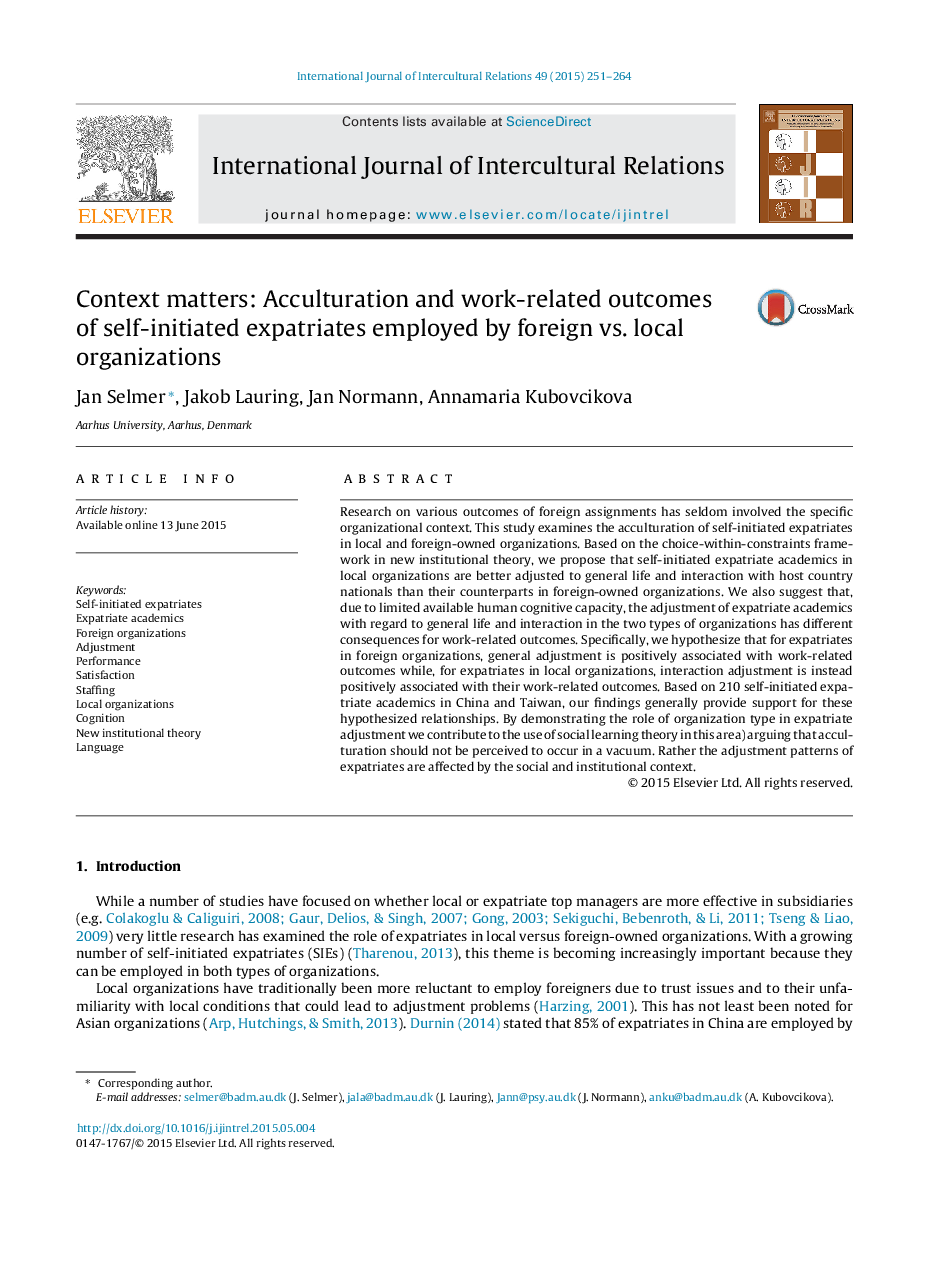| Article ID | Journal | Published Year | Pages | File Type |
|---|---|---|---|---|
| 7323786 | International Journal of Intercultural Relations | 2015 | 14 Pages |
Abstract
Research on various outcomes of foreign assignments has seldom involved the specific organizational context. This study examines the acculturation of self-initiated expatriates in local and foreign-owned organizations. Based on the choice-within-constraints framework in new institutional theory, we propose that self-initiated expatriate academics in local organizations are better adjusted to general life and interaction with host country nationals than their counterparts in foreign-owned organizations. We also suggest that, due to limited available human cognitive capacity, the adjustment of expatriate academics with regard to general life and interaction in the two types of organizations has different consequences for work-related outcomes. Specifically, we hypothesize that for expatriates in foreign organizations, general adjustment is positively associated with work-related outcomes while, for expatriates in local organizations, interaction adjustment is instead positively associated with their work-related outcomes. Based on 210 self-initiated expatriate academics in China and Taiwan, our findings generally provide support for these hypothesized relationships. By demonstrating the role of organization type in expatriate adjustment we contribute to the use of social learning theory in this area) arguing that acculturation should not be perceived to occur in a vacuum. Rather the adjustment patterns of expatriates are affected by the social and institutional context.
Related Topics
Social Sciences and Humanities
Business, Management and Accounting
Business and International Management
Authors
Jan Selmer, Jakob Lauring, Jan Normann, Annamaria Kubovcikova,
